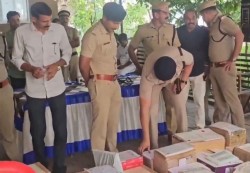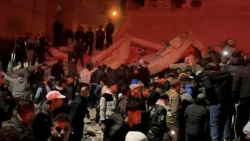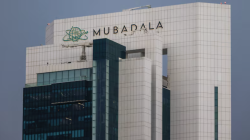Arrests made after Palestinian group claims killing of Israeli guard
- 2022-05-01 11:22:08


 Pierre Rayer: Art, Science, and Happiness: The Universal Mission of Transmission to Future Generations through Patronage at the Louvre Abu Dhabi
Pierre Rayer: Art, Science, and Happiness: The Universal Mission of Transmission to Future Generations through Patronage at the Louvre Abu Dhabi Ahly crowned Super champions after dramatic extra-time win over Modern Future FC
Ahly crowned Super champions after dramatic extra-time win over Modern Future FC Yemeni Honey..A Development Wealth Threatened By Conflict And Climate Change
Yemeni Honey..A Development Wealth Threatened By Conflict And Climate Change California wildfires: Millions warned of possible power cut
California wildfires: Millions warned of possible power cut Central African rebels launch attacks near capital
Central African rebels launch attacks near capital Kerala Police Bust ₹100-Crore Fake Degree Racket; 11 Arrested Across India, Including 3 From Tamil Nadu
Kerala Police Bust ₹100-Crore Fake Degree Racket; 11 Arrested Across India, Including 3 From Tamil Nadu Florida Plane Crash Caught Small Aircraft Collides with Car in the US
Florida Plane Crash Caught Small Aircraft Collides with Car in the US Microsoft announces $17.5 bn investment in India, its 'largest ever' in Asia
Microsoft announces $17.5 bn investment in India, its 'largest ever' in Asia At least 22 killed in collapse of two buildings in Morocco's old city of Fez
At least 22 killed in collapse of two buildings in Morocco's old city of Fez Alpha Dhabi and Mubadala joint venture acquires European lending assets from Apollo
Alpha Dhabi and Mubadala joint venture acquires European lending assets from Apollo
